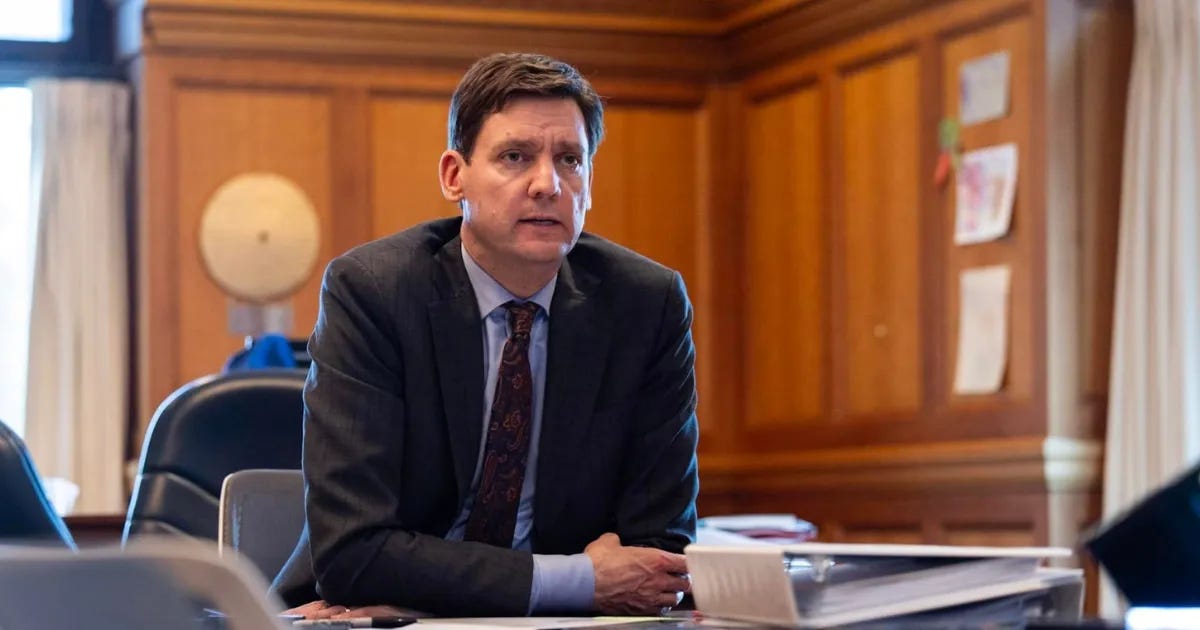B.C. Conservatives argue Premier David Eby needs to scrap Bill 7 entirely
The B.C. Conservatives are demanding that B.C. Premier David Eby completely scraps his anti-U.S. tariffs bill, arguing that it keeps in place too many anti-democratic provisions that will result in government overreach.
Eby announced he would keep Bill 7 alive while separating and reworking a controversial component of the bill that allowed his government to adopt extraordinary powers to amend laws while avoiding legislative scrutiny.
The B.C. premier announced on Friday that his government will withdraw part four of Bill 7, but opponents are saying it’s not enough, as the rest of the bill still grants sweeping, unchecked power to his cabinet.
“He isn’t scrapping Part 4—he’s just retooling it to make it easier to hide sweeping powers in other parts of the bill. This bill gives the NDP the ability to amend laws, levy fees, change regulations, and collect personal data with any oversight. It’s a blatant attempt to bypass proper checks and balances, concentrating power in the hands of the cabinet,” said B.C. Conservative transport critic and MLA Harman Bhangu.
He called for Bill 7 to be scrapped altogether.
Part four of the bill contained numerous sections. It granted the government powers to modify existing laws and override previous regulatory requirements to respond to foreign trade actions. The cabinet would have the authority to amend or repeal regulations without legislative debate. Regulations would also have been implemented retroactively to January 20, 2025.
Conservative MLA Sheldon Clare echoed his concerns, calling on residents to keep the pressure up and stop Bill 7 completely.
“I believe very strongly that we need the ability to move quickly. But, we’ve also heard from a number of people, a number of key stakeholders, including our tariff and economic response committee, Indigenous leaders, and trade organizations,” said Eby.
Section 19 of the bill grants the provincial government the ability to make regulations based on any “challenges, or anticipated challenges, to British Columbia arising from the actions of a foreign jurisdiction.”
It also allows any regulations that support the economy of British Columbia or Canada.
One of the bill’s most vocal critics was the Leader of the Conservative Party of British Columbia, John Rustad, who warned it would give the provincial government “almost unlimited powers with zero oversight.”
“If you thought government overreach during COVID-19 was bad — wait until you hear about what B.C.’s radical NDP is trying with Bill 7,” wrote Rustad.
Eby said it has been his goal from the start to work collaboratively with industry and First Nations groups to respond to the tariff threat appropriately.
Despite Eby citing a collaborative approach, Bhangu said that the B.C. NDP was trying to ram the bill through without consulting businesses or stakeholders.
“British Columbians deserve transparency, not backroom powerplays. Bill 7 must be scrapped!” said Bhangu.
The premier said he felt part four of the bill was necessary because the U.S. president could sign executive orders quickly and easily and hoped the province could act similarly.
When natural disasters occur, the British Columbian government has emergency response authorities to implement legislation quickly. The same legislation does not exist for what Eby termed “disasters created by the President of the United States.”
Eby’s press conference came shortly after a call between the country’s premiers and prime minister. He said he didn’t know why other premiers hadn’t implemented similar bills but applauded Ontario’s retaliatory tariffs on hydro to northern U.S. states.
He said part four of the bill will be separated, reformatted, and debated separately in the Legislature to potentially allow the province to have the necessary emergency legislation to deal with threats from foreign governments.
Eby also noted the uncertainty with the country’s federal leadership as a concern.
“I want this election behind us as quickly as possible. I want a prime minister sworn in. I want stability at the federal level,” he said.
The federal election will occur on April 28, 2025.
Eby added that he supports the federal NDP but wouldn’t tell others who to vote for.
The most recent 338Canada polling shows that the federal NDP would only win five seats, well below the 12 required to maintain official party status.
Eby added that he hoped to pass the other portions of the bill by the end of this legislative session.
As for the reformatted part four, he said it was unlikely that anything would be introduced during this session because the legislative agenda was already bursting at the seams.
The post B.C. Conservatives argue Premier David Eby needs to scrap Bill 7 entirely appeared first on The Counter Signal.




Scratch a leftist to find the totalitarian inside. They are all wanna be dictators.